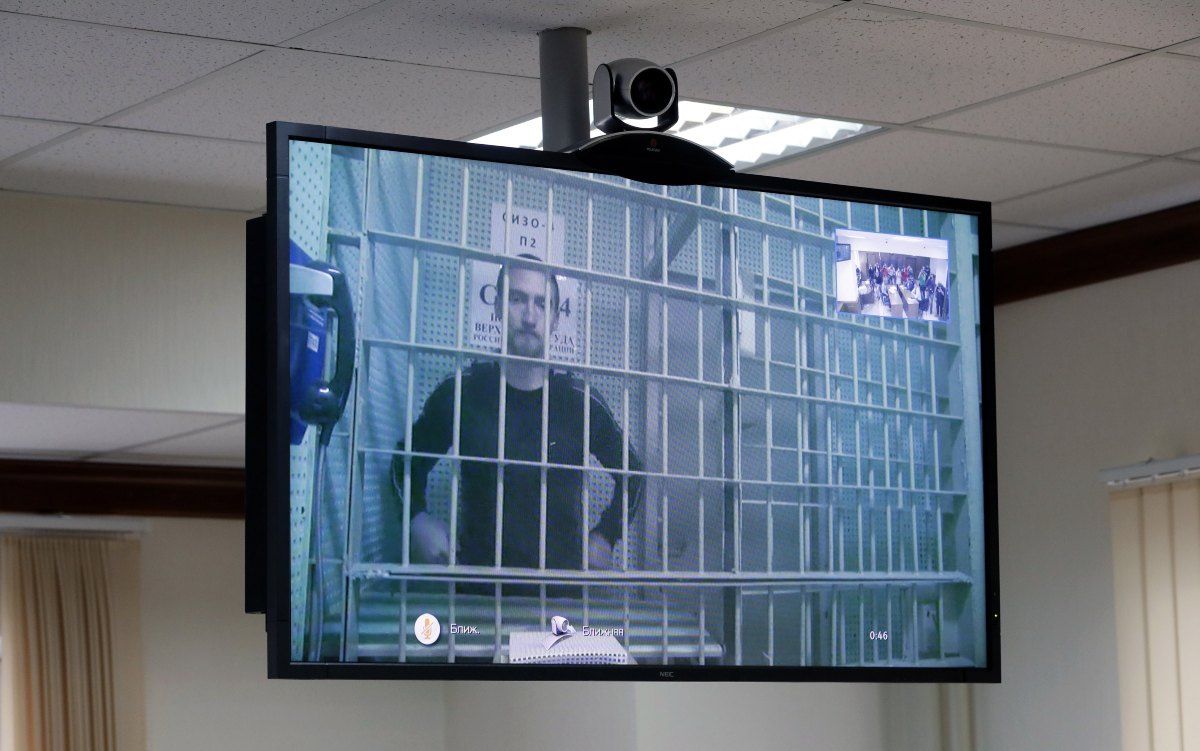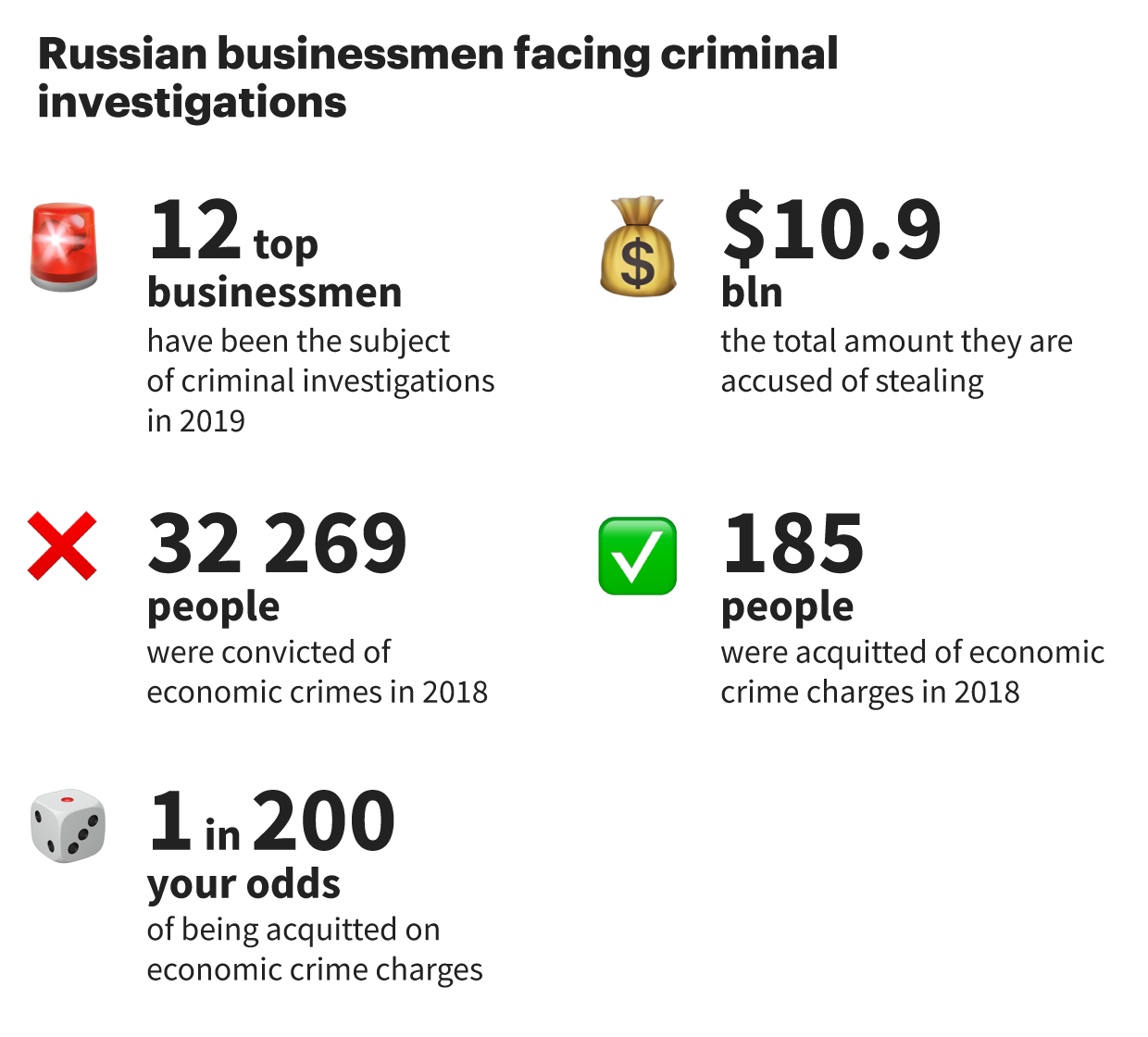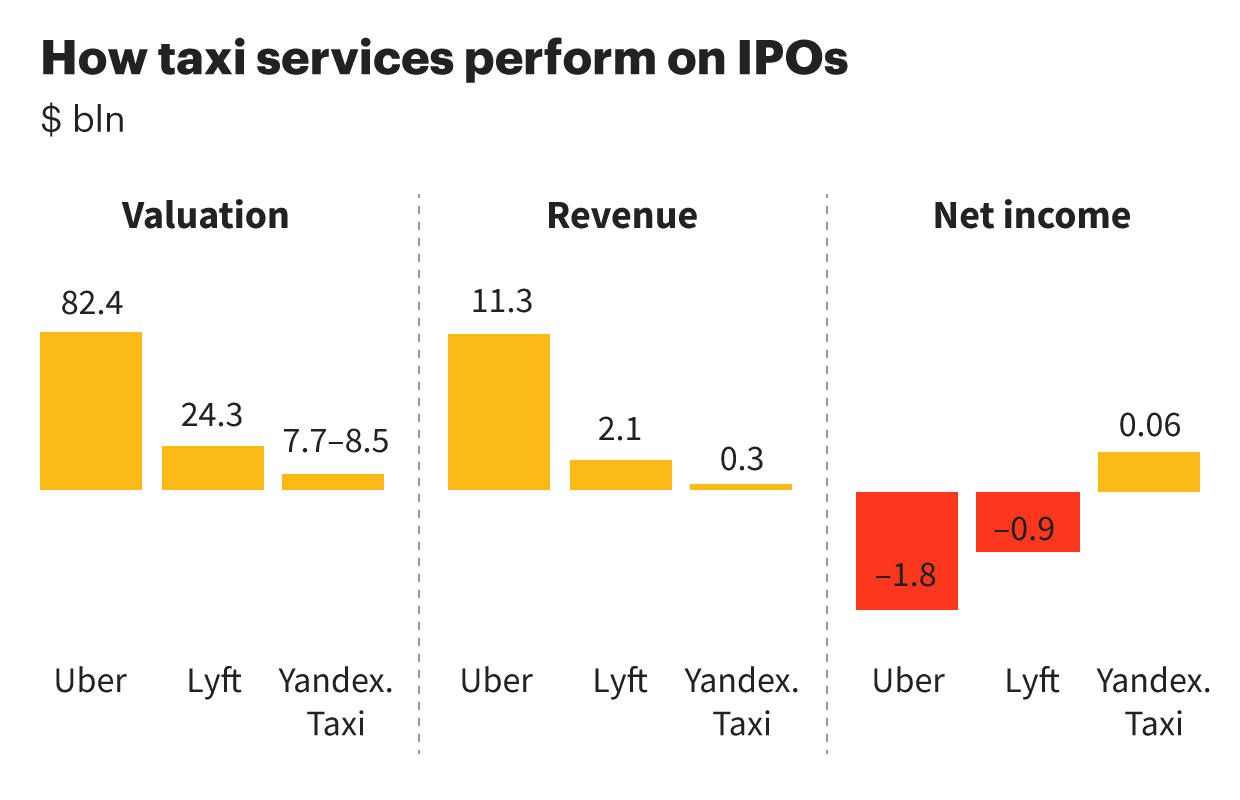
Kremlin insiders speak out over jailed actor
Hello! This week our main story explains why Kremlin heavyweights spoke out over the jailing of actor Pavel Ustinov (who was freed Friday). We also examine the star-studded guest list at the wedding of former presidential candidate Ksenia Sobchak, have details of The Bell’s analysis of major businessmen currently caught up in criminal investigations, and have a look at Yandex.Taxi’s possible IPO, a stellar new valuation for cybersecurity firm Acronis and why Russian oilmen are in the money this week.
Kremlin insiders speak out over jailed actor

Public criticism of the police or legal system by top Russian officials is extremely rare. This week, it occurred not once, but several times, amid a successful campaign in support of Pavel Ustinov, a young actor jailed for three and a half years following his arrest at an opposition protest. Amid the outrage, a Moscow court ordered Ustinov to be released from prison Friday, and an appeal next week is widely expected to be successful.
- Ustinov was convicted of violently resisting arrest, causing one of the police officers who detained him to dislocate his shoulder. However, a video showed the actor being tackled to the ground as he walked through downtown Moscow looking at his phone. He later said he was not even taking part in the unsanctioned opposition demonstration going on at the time. The case was one of several harsh sentences handed out to those involved in election-related protests in Moscow this summer. But Ustinov’s situation prompted an outpouring of criticism, with dozens of prominent actors and artists, including those with close ties to the Kremlin, showing support. This was unexpected as actors are usually apolitical, and have been extremely careful after the recent prosecution of theater director Kirill Serebrennikov.
- But the solidarity of the artistic community was not the only interesting development: the Ustinov case also saw senior officials also voiced rare public criticism of the legal system. The day after Ustinov’s sentencing, head of state-funded RT Margarita Simonyan wrote (Rus) on Twitter that “injustice is what destroys the state” and hinted (Rus) that Kremlin officials were working to reverse the decision. This was followed by Andrei Turchak, the head of the General Council of the ruling United Russia party, who described (Rus) Ustinov’s case Wednesday as a “flagrant injustice”, and the powerful head of Russia’s National Guard, Viktor Zolotov, who said Thursday that Ustinov deserved no more than a 1-year suspended sentence.
- The reasons for Zolotov and Turchak deciding to speak out are not immediately clear, but there was speculation the men were aware a political decision had been taken to release Ustinov and were using the information to boost their own political standing.
- Many have compared the successful campaign to free Ustinov with the public campaign in June over investigative journalist Ivan Golunov, who was arrested on fabricated drug charges. Both cases saw an unprecedented mobilization of professional communities in support of one of their members: in the case of Ustinov, the artistic community, and in the case of Golunov, the journalist community. And both men were backed publicly by figures in the Russian elite.
Why the world should care
While few believe the Golunov and Ustinov cases mean a major political shift is underway, it is beginning to look like a new trend — many are realising that public campaigns can make a difference. But the new interventions by top officials may also indicate that a jockeying for power inside the Kremlin is intensifying.
Surkov, Peskov, Blavatnik: Russia’s elite turns out for Sobchak wedding
Guests at the wedding of Russian it girl Ksenia Sobchak last Friday were a who’s who of politicians, celebrities and wealthy businessmen. Sobchak, 37, the daughter of President Vladimir Putin’s former boss, made her name as ‘Russia’s Paris Hilton’ before trying her hand at activism and journalism. Last year, she mounted a presidential campaign in which she attempted to market herself as independent, liberal candidate.
- Among the guests at the wedding reception in a Moscow museum were Putin’s press spokesperson Dmitry Peskov (who gave a toast); Kremlin ideologue Vladislav Surkov; head of state-owned Channel One Konstantin Ernst; Dmitry Medvedev’s former spokesperson, Natalya Timakova; billionaires Len Blavatnik, Alexander Mamut and Roman Trotsenko; and famous names from the world of show business.
- Sobchak’s second husband is theater director Konstantin Bogomolov and the nuptials were organized with an eye for the dramatic. The couple arrived at the registry office in a hearse, said their vows in the same church that Russian poet Alexander Pushkin used for his marriage in 1831, and Sobchak performed a striptease at the reception.
- In recent years, Sobchak has been known for her opposition activism: she participated in the anti-Putin protests of 2011-2012, and has worked with liberal television station Dozhd. At the same time, she retains personal ties to Putin: her father, Anatoly Sobchak, was Putin’s political mentor in St. Petersburg in the 1990s.
- While many were suspicious of Sobchak’s political ambitions, she always insisted her bid to become president was not the result of a deal with the Kremlin (she came fourth with 1.7 percent of the vote). Since then, she has all but disappeared from politics, and notably avoided taking a prominent role in this summer’s opposition rallies in Moscow. Instead, she is in line to become the next presenter of a flagship talk show on state-owned Channel One. A return to mainstream TV would be a milestone for Sobchak, who once said she was banned from state-controlled networks for her opposition activity.
Why the world should care
If there was anyone left who still believed Sobchak was an anti-regime activist, a glance at the guest list for her wedding should disabuse them of that illusion.
The Bell analyzes the businessmen facing criminal charges this year
More than one of our 2019 newsletters have focused on major businessmen facing new criminal charges. In fact, the first seven months of this year have seen 12 major businessmen accused of offenses ranging from fraud to money laundering. We decided to spend some time looking at this trend. You can read our main conclusions in Russian here and below we have some of the main points.

- Leaders: Total damages being sought in the biggest 12 criminal cases amount to $10.9 billion. But two-thirds of this is from two banking cases: one against the former owner of Yugra bank, Aleksei Khotin, and the other against the former owners of Promsvyazbank, Aleksei and Dmitry Ananyev. Both banks were controversially wound-up by the Central Bank in 2017.
- Assets: Across the whole of Russia, 55 percent of businessmen hit by criminal charges lost their businesses and 39 percent lost most of their assets (according to a survey conducted by the Federal Guards Service). This is also true for the businessmen analyzed by The Bell.
- Trends: The number of convictions on economic crime charges has been growing. In 2015, 31,194 people were convicted under the most commonly-used economic crime laws; in 2018 the figure was 32,269. The number of convictions under different laws wax and wane: for example, four people were charged in 2015 under a law regulating the use of legal entities, and in 2018 this number rose to over 1,500 (mainly due to a crackdown on tax crime). The proportion of people acquitted when charged with an economic crime remains only about 0.47 percent.
- People: The most famous person in The Bell’s rating is Michael Calvey, who ranked seventh in terms of the size of the claims against him ($39 million). This week we learned of a significant development (Rus) in his case, which means Calvey may soon be released because of a lack of evidence.
Why the world should care
Calvey’s release would be positive news for the Russian market, but it doesn’t alter the bigger picture: just like the Ustinov case, it would be the exception that proves the rule. More than two-thirds of businessmen believe it is dangerous to do business in Russia, according to the Federal Guards Service survey. This depressing statistic explains why — despite much discussion among officials — the investment climate remains in dire shape.
Yandex.Taxi valued at $7.7-8.5 billion ahead of IPO
In the run-up to what is likely to be the largest Russian IPO in the coming year, investment banks have valued (Rus) Russia’s biggest taxi service at up to $8.5 billion. The major threat to Yandex.Taxi’s IPO is ride-hailing app CityMobil, which is owned by Internet holding Mail.ru and state-owned banking giant Sberbank. There is bad blood between Sberbank and Yandex: several years ago, they tried to launch an online retail venture, but it didn’t work out.
- Yandex.Taxi is a joint venture between Yandex and Uber and will hold its IPO later this year, or next year, in the United States. Investment banks have made different valuations, but they are all in the same range: Goldman Sachs and Sberbank CIB put it at $7.7 billion, UBS at $8.4 billion, and BofA Merrill Lynch at $8.5 billion.

- Yandex.Taxi (along with Yandex’s food services) had revenues of over $300 million last year, and this is expected to double in 2019. Today, Yandex.Taxi accounts for 32% of the Russian taxi market, and this is forecast to grow to 56% by 2023, according to Goldman Sachs.
- Yandex.Taxi’s valuation might undermined by any successes enjoyed by Mail.ru and Sberbank’s joint venture (Rus): they are developing their own taxi service, CityMobil. This is also popular in Russia, but has a long way to go until it can rival Yandex.Taxi (by 2022, CityMobil is forecast to have revenues equal to only 18 percent of Yandex.Taxi’s). Nevertheless, it is a serious competitor: Yandex.Taxi has 56.5 percent of the Moscow taxi market, CityMobil has 25.4 percent. Considering that Sberbank and Mail.ru will invest almost $1 billion rubles in the service, CityMobil’s market share could grow dramatically.
Why the world should care
Successful IPOs by Russian companies have become a rarity in recent years, so the market will be paying close attention to the fate of Yandex.Taxi.
Acronis second company with Russian roots this year to become ‘unicorn’
Acronis, a cybersecurity solutions provider, has been valued at almost $1.5 billion during its first round of capital raising in 14 years. This is the second billion dollar valuation for an IT company founded by Russian emigrants in 2019 (the first was software developer Luxsoft).
- The terms of the deal have not been made public, but investors, led by Goldman Sachs, will pay $147 million for at least a 10% stake in Acronis. This is only the second such capital investment in the company’s 16-year history.
- Acronis was founded by the Soviet-born Andrei Belousov, and his university classmate Ilya Zubarev. While the two men began their business assembling computers and television sets for the Russian market in the 1990s, Acronis has limited ties with Russia: Belousov does not now have Russian citizenship and the company is registered abroad. By 2016, two-thirds of Acronis’ revenues were generated in the U.S. and Europe.
- The first Russian unicorn this year was software developer Luxoft. In February, Luxoft was sold to multinational DXC Technology for $2 billion.
Why the world should care
Acronis and Luxoft have one thing in common: both companies designed their businesses to be global, and have striven not to be dependent on Russian consumers. This is a very wise strategy today: in the first half of 2019, even Russian venture capitalists invested 3.5 times more often in foreign-owned start-ups than Russian companies.
IN BRIEF
Russia profits from attack on Saudi Arabia’s oil infrastructure
The main international news this week was the Saturday drone attack on the Saudi Arabian oil fields and processing infrastructure, which led to the largest ever spike in the price of crude. This sent shockwaves through the market but saw one major winner — Russia.
On Monday, Russian oilmen saw dramatic increases in their personal fortunes, as the market capitalization of energy companies jumped. The net worth of Vagit Alekperov (the owner of Lukoil) grew by $536 million on Monday, while the value of Leonid Mikhelson and Gennady Timchenko (co-owners of Sibur and Novatek) rose by $445 million and $42 million respectively. Russian oil and gas company stocks also performed well: Novatek was up 5.4% percent this week, Rosneft was up 4 percent, and Tatneft rose 2 percent.
Only the ruble remained indifferent to the news, with the exception of a slight strengthening Monday morning. Due to Russia’s budgetary rules, additional oil profits go directly to the Russian government and have only a very weak impact on the currency (in contrast to a plunge in the oil price when the effect is immediate and highly visible).
Translation by Tanja Majer, editing by Howard Amos




